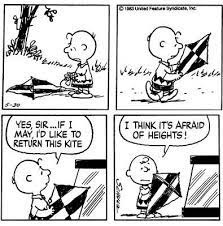The Mystery of Mr. Eat-to-Live
Dear Tamar:
Here's my Zen question: How do I make time to cook?
Mr. Eat-to-Live
Dear Mr. Eat-to-Live,
I love Zen koans—probably for the same reason anyone does. I love the way reading them broadens my internal panorama. I love the momentary lightness I feel, the deep-inside ‘aha!’ The koans I return to crack open a problem. They shake up their subject matter, as one shakes vinaigrette ingredients in a Mason jar. When the jar settles, it no longer contains vinegar, salt, mustard, oil, but a smooth golden-ochre dressing.
“The Short Staff” is an example.
Shuzan held out his short staff and said, "If you call this a short staff, you oppose its reality. If you do not call it a short staff, you ignore the fact. Now what do you wish to call this?"
Another is “Muddy Road.”
Tanzan and Ekido were once traveling together down a muddy road. A heavy rain was still falling. Coming around a bend, they met a lovely girl in a silk kimono and sash, unable to cross the intersection. "Come on, girl" said Tanzan at once. Lifting her in his arms, he carried her over the mud. Ekido did not speak again until that night when they reached a lodging temple. Then he no longer could restrain himself. "We monks don't go near females," he told Tanzan, "especially not young and lovely ones. It is dangerous. Why did you do that?" "I left the girl there," said Tanzan. "Are you still carrying her?"
You see what I mean? One sees light between the planks. My answer to your zen question is a koan-inspired answer: The way to make time to cook is to not make time to cook. I’ll explain. And because zen teaching advises: “If you meet the Buddha on the road, kill him!” I add: there’s nothing unique in my advice.
Making time to cook suggests an inflexible scenario: dedicating an hour, maybe more, before dinner, Monday through Friday—plus time on the weekends—to making the next meal, and then cleaning up. Ad infinitum.
When I read your question, I imagine you demanding of yourself a version of the above. And I find it stifling and unrealistic and exhausting. It sounds Sisyphusian.
The way I’ve found to consistently cook is to make tiny gestures of cooking almost constantly. The gestures are basics of food preparation, like washing lettuce, cooking beans, cooking meat, cleaning and cutting vegetables, cooking rice, and so on.
What I mean by “constantly” is doing each of them absolutely whenever, ideally while something else is happening in the kitchen, or when one has company. Then, at mealtime, treating each finished gesture as cooking you’ve done and now insist on taking advantage of.
I’ll give some examples. I used to be conscientious about washing lettuce as soon as I got home from the market. I’m less so now, but the gesture is the same. I wash and dry all the lettuce in the house when I wash any of it. If I notice two heads of lettuce sitting in a drawer for a few days, I’ll put some lettuce on the menu for a coming meal—a green salad to go alongside burgers, or salade Nicoise, or salade Lyonnaise, or summer rolls. Then, I set towels on my counter, fill the sink with water, and wash and dry all the lettuce. When it’s dry, I put most away. Part of tonight’s meal is ready, as is any other salad, for days.
I soak a bag of beans whenever it occurs to me. At this time tomorrow, the swollen beans will demand cooking. Within a couple of hours, there will be cooked beans. These become part of the next meal—if you have carrots, onions, garlic, herbs, and pasta, why not minestrone? If you have tortilla chips, why not nachos?—and cooking done for future ones. Cooked beans freeze perfectly. The future involves meals begun by thawing frozen beans.
I often write in my kitchen. I use the time to make granola—oats, sesame seeds, coconut, olive oil, brown sugar, maple syrup, and salt, mixed, stirred every 10-15 minutes. Or to make stock. Or to cook all the frozen tomatoes into simple tomato sauce. Or to stale all the leftover bread in the house in a low oven and pulse it into breadcrumbs later. Or to cook the beans.
I do it at 9 am, or 9 pm, or midday. Or I do it while reading the New Yorker on Sunday. This is what I mean by “constant:” nudging ingredients forward, ceaselessly, without stepping outside or changing the rest of life; letting ingredients go from raw to cooked, from cooked to combined, all while the rest of it is happening, too.
Dear cook, you don’t need to make time. Do little bits of cooking in the time you have. Without them, you’re always rolling a boulder uphill anew. And do them with as much of yourself present, for the tiny moments it takes to stir the granola, taste the bean broth, decide whether the lettuce is dry, as you can muster. I’ve always heard a Zen koan in Albert Camus’s assessment: “One must imagine Sisyphus happy.”
Dear cooks! I’m running low on QUESTIONS! Please send me whatever culinary ills trouble you!





Love this. I’m new to you but I’m getting a lot from your thoughts. I’m an empty nester in a new state/home and I have lost my cooking mojo. Just bored. Help! These koans touched a nerve for sure.
This is great! Reminds me of the cookbook “Cooking as Though You Might Cook Again” by Danny Licht.